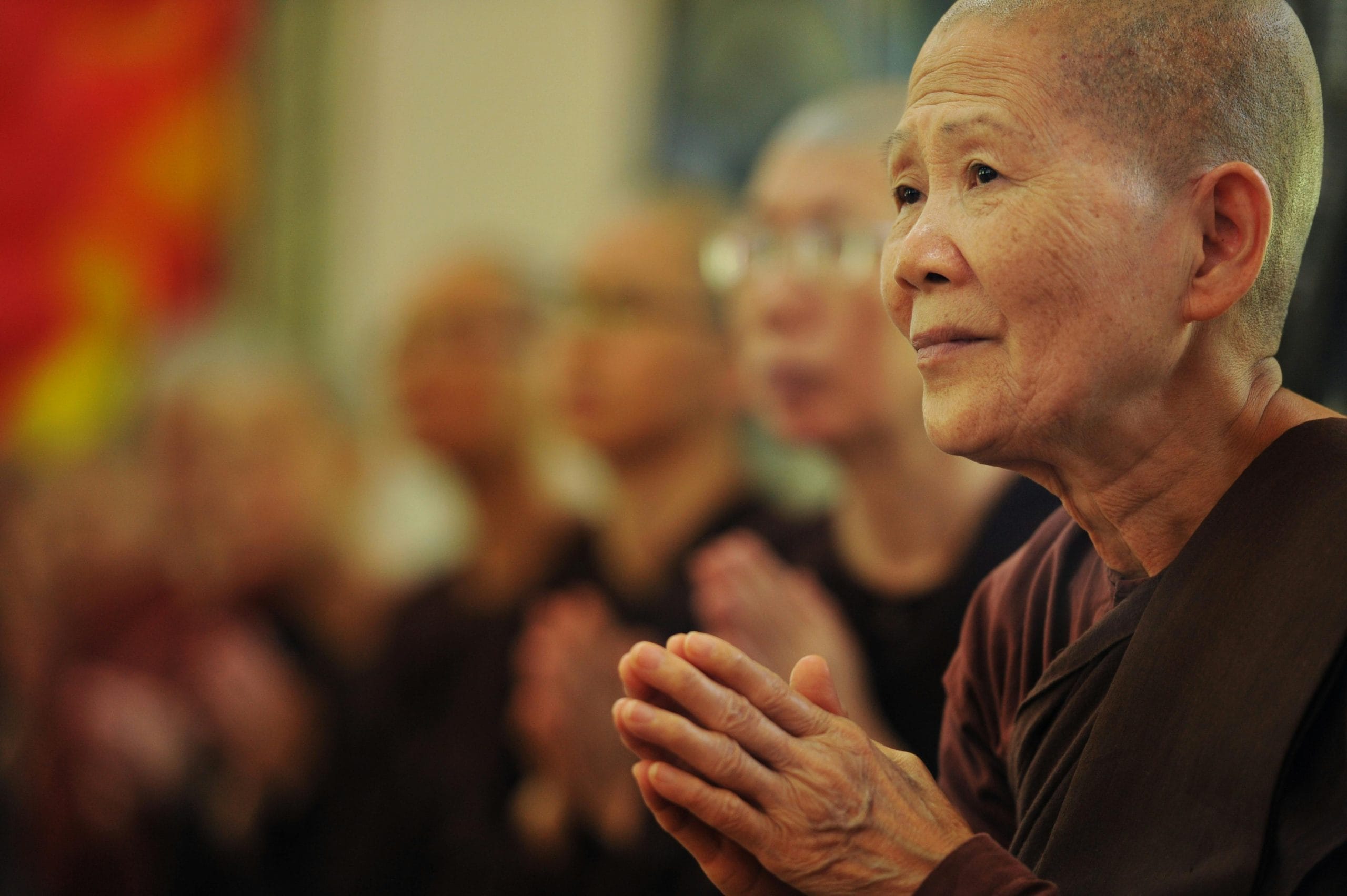What Books or Resources Should I Read to Get Started with Buddhism?
Buddhism has become increasingly popular worldwide, with many people drawn to its teachings on mindfulness, compassion, and inner peace. However, diving into Buddhism can be overwhelming due to its rich history, diverse schools, and extensive literature. Whether you’re looking for an introduction to Buddhist philosophy, meditation practices, or a deeper understanding of Buddhist ethics, there are plenty of books and resources to guide you. This guide covers some of the best beginner-friendly books and resources to help you explore Buddhism in a meaningful and accessible way.
1. The Heart of the Buddha’s Teaching by Thich Nhat Hanh
Thich Nhat Hanh, a renowned Vietnamese Zen master, has written many accessible and compassionate guides on Buddhist teachings. The Heart of the Buddha’s Teaching is an excellent starting point, providing an overview of core Buddhist concepts such as the Four Noble Truths, the Eightfold Path, and mindfulness practices. Thich Nhat Hanh presents complex ideas in clear, simple language, making this book ideal for beginners. He offers practical ways to apply these teachings in daily life, blending philosophy with actionable insights.
2. What the Buddha Taught by Walpola Rahula
For those interested in a traditional and comprehensive introduction to Buddhism, What the Buddha Taught by Walpola Rahula is a classic. This book delves into the essential teachings of the Buddha, including key concepts like karma, rebirth, and the path to enlightenment. Rahula, a Theravada monk, presents the teachings with clarity and depth, while remaining true to the original Pali texts. This book is especially valuable for readers interested in a straightforward and scholarly approach to the Buddha’s words.
3. Buddhism Plain and Simple by Steve Hagen
Buddhism Plain and Simple by Steve Hagen is a direct and accessible guide that strips Buddhism down to its core principles without unnecessary complexity. Focusing on Zen Buddhism, Hagen emphasizes mindfulness and direct experience, encouraging readers to find the truth within themselves. This book is especially helpful for readers who want to understand the practical aspects of Buddhism rather than the rituals or cultural elements. Hagen’s straightforward style makes this a highly approachable book for those looking to experience Buddhism in daily life.
4. The Dhammapada – Translations by Eknath Easwaran or Gil Fronsdal
The Dhammapada is a foundational text in Buddhism, containing a collection of the Buddha’s teachings in verse form. Translations by Eknath Easwaran or Gil Fronsdal make this ancient text accessible to modern readers, providing insight into Buddhist values like compassion, mindfulness, and wisdom. The Dhammapada is an excellent book for beginners because it presents the Buddha’s words directly, with verses that are both inspiring and thought-provoking. Reading a few verses each day can serve as a guide to ethical living and personal growth.
5. The Art of Happiness by the Dalai Lama and Howard Cutler
The Art of Happiness offers an engaging blend of Buddhist philosophy and psychology, making it an ideal introduction for beginners. Written by the Dalai Lama and psychiatrist Howard Cutler, this book explores concepts like compassion, resilience, and the pursuit of happiness through a Buddhist lens. It combines the Dalai Lama’s wisdom with psychological insights, creating a practical guide for anyone seeking greater happiness and peace in their lives. The book’s conversational style and real-life examples make Buddhist teachings feel relatable and applicable.
6. Introduction to Buddhism: An Explanation of the Buddhist Way of Life by Geshe Kelsang Gyatso
This book by Tibetan monk Geshe Kelsang Gyatso provides a comprehensive introduction to Buddhism, covering topics such as the Four Noble Truths, the nature of karma, and meditation practices. Written in a clear and straightforward manner, it serves as a valuable resource for anyone seeking a deeper understanding of Buddhism’s core principles. The book also includes practical guidance on meditation and how to integrate Buddhist teachings into everyday life, making it a well-rounded choice for beginners.
7. Why Buddhism is True by Robert Wright
Why Buddhism is True by Robert Wright offers a unique perspective on Buddhism by examining it through the lens of psychology and evolutionary biology. Wright explores how Buddhist practices like mindfulness can help us understand and manage our thoughts and emotions. Although the book leans toward a secular interpretation, it provides valuable insights into why Buddhist teachings resonate with people across different backgrounds. Wright’s engaging and scientifically grounded approach makes this a fascinating read for those interested in the intersection of science and spirituality.
8. The Miracle of Mindfulness by Thich Nhat Hanh
In The Miracle of Mindfulness, Thich Nhat Hanh introduces mindfulness as a transformative practice for everyday life. This short, accessible book explains mindfulness in simple terms, offering techniques for staying present in each moment. Thich Nhat Hanh provides practical exercises, like mindful breathing and walking meditation, that readers can incorporate into their daily routines. This book is an excellent choice for anyone seeking a gentle, practical introduction to mindfulness and meditation.
9. Zen Mind, Beginner’s Mind by Shunryu Suzuki
For those drawn to Zen Buddhism, Zen Mind, Beginner’s Mind by Shunryu Suzuki is a classic. This book explores Zen concepts like mindfulness, meditation, and the beginner’s mind—an attitude of openness and curiosity. Suzuki’s teachings are simple but profound, encouraging readers to approach life with a sense of wonder and humility. While some concepts may be abstract, the book’s straightforward advice on meditation and presence makes it accessible to newcomers.
10. Online Resources for Learning Buddhism
In addition to books, online resources can be an excellent way to explore Buddhism. Many Buddhist organizations and teachers offer free or low-cost materials online, including guided meditations, lectures, and courses. Here are a few recommendations:
- Insight Meditation Society (IMS): IMS offers a variety of free meditation resources, talks, and courses led by experienced Buddhist teachers, focusing on mindfulness and insight meditation.
- Dharma Seed: Dharma Seed is a valuable resource for accessing free audio recordings of Buddhist teachings. The website hosts talks from well-known teachers in the Vipassana (insight) tradition.
- Thich Nhat Hanh’s Plum Village: Plum Village, the community founded by Thich Nhat Hanh, provides online resources, including guided meditations and Dharma talks, focusing on mindfulness, compassion, and peace.
- Buddhist YouTube Channels: Channels like those by the Dalai Lama, Ajahn Brahm, and Insight Meditation Center offer a wealth of video content on Buddhist teachings and meditation practices. YouTube is a great platform for accessing a variety of perspectives and approaches within Buddhism.
11. Mobile Apps for Buddhist Meditation and Mindfulness
Several mobile apps offer guided meditations and teachings rooted in Buddhist principles. These apps can be a helpful way to build a consistent practice, even with a busy schedule:
- Insight Timer: Insight Timer offers thousands of free guided meditations, including those led by Buddhist teachers. You’ll find a wide range of meditation techniques, from breath awareness to loving-kindness.
- Headspace: While not exclusively Buddhist, Headspace includes mindfulness meditations and practices inspired by Buddhist teachings, presented in a user-friendly format.
- Buddhify: Buddhify offers a wide variety of guided meditations, each designed for specific activities, such as working, traveling, or sleeping. Many of the practices are inspired by Buddhist mindfulness techniques.
Starting your journey into Buddhism can be both exciting and enriching. The books and resources listed here offer a range of perspectives, making it easier to find materials that resonate with your interests and learning style. Whether you prefer the simplicity of Zen, the compassion of Tibetan Buddhism, or the insight of Theravada teachings, there’s a wealth of wisdom to explore. As you begin reading and practicing, take your time and approach each resource with an open heart. Buddhism encourages personal exploration and experience, so let your curiosity guide you as you delve into this ancient and transformative path.










